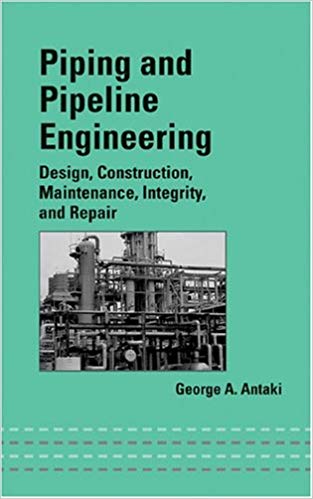Joe Biden revoked the permit needed to build the Keystone XL oil pipeline (KXL)
Written By pipeline-engineer.com on Saturday, January 23, 2021 | 10:11:00 PM
Pipeline Challenges Limits of Leak-Tight Pipeline Isolation Capabilities
Written By pipeline-engineer.com on Saturday, October 3, 2020 | 12:48:00 AM
Despite this, and due to continued integrity management programs and regular inspection, these pipelines continue to operate safely. As part of an integrity management program, pipeline and piping systems require inspection, maintenance, and repair to ensure efficient and safe operation.
The seals on the BISEP were each independently tested, and the annulus void between the seals was vented to create a leak-tight double block and bleed isolation. With the fully tested and constantly monitored BISEP isolating the steam line, an isolation certificate was issued to the client allowing breaking of containment activities to safely take place.
The client had requested that the split tee fittings were removed from the pipeline after the workscope was completed, so STATS methodology involved using the company’s inline isolation tool to enable the fittings to be cut and removed from the pipeline.
Lagos Explosion: BBC Africa Eye uncovers evidence that contradicts NNPC’s claims
Written By pipeline-engineer.com on Tuesday, September 22, 2020 | 9:09:00 AM
New evidence obtained by BBC Africa Eye contradicts the official explanation for the cause of an explosion which killed 23 people and destroyed a girls boarding school in Lagos, Nigeria, earlier in the year.The blast occurred in Soba, a residential neighbourhood of Lagos, on March 15th, 2020, at about 8:56 am.
In its reaction to the incident at the time, the Nigerian National Petroleum Corporation (NNPC) claimed the explosion occurred as a result of a truck that hit gas cylinders near one of its petroleum pipelines.
But new evidence indicates that the NNPC explanation for the
cause of the blast, that decimated over 100,000 square metres of Lagos, is
incorrect.
A new video evidence filmed at the explosion site, five
minutes before the blast, shows a catastrophic leak of vaporised liquid at the
exact location where the NNPC high-pressure petroleum pipeline runs beneath the
ground through that area.
The BBC found there was no gas processing plant at the explosion’s epicentre.
Moreover, analysis of gas cylinders found at the site after the blast indicates they could not have been at the centre of the explosion when it happened.
Three specialist engineers – including experts in LPG gas
safety, petroleum pipeline safety, and explosions analysis – who have examined
video footage all confirm the huge leak of vaporised liquid could not have come
from gas cylinders.
The BBC spoke with eyewitnesses who corroborated this claim.
None of them mentioned gas cylinders or saw a collision, but four of them
independently said the leak was coming out of the ground beside the heavily
laden truck.
API calls for pipeline permit reforms following shutdowns
Written By pipeline-engineer.com on Saturday, July 11, 2020 | 12:24:00 AM
WASHINGTON – The American Petroleum Institute released the following statement from President and CEO Mike Sommers in response to the cancellation of the Atlantic Coast Pipeline and a court ruling to shut down the Dakota Access Pipeline. "Between the Atlantic Coast Pipeline cancellation and now the ruling to shut down the Dakota Access Pipeline – we are deeply troubled by these setbacks for U.S. energy leadership. Our nation’s outdated and convoluted permitting rules are opening the door for a barrage of baseless, activist-led litigation, undermining American energy progress and denying local communities the environmental, employment and economic benefits modern pipelines provide. The need to reform our broken permitting system has never been more urgent." API represents all segments of America’s oil and natural gas industry. Its more than 600 members produce, process, and distribute most of the nation’s energy. The industry supports 10.9 million U.S. jobs and is backed by a growing grassroots movement of millions of Americans. API was formed in 1919 as a standards-setting organization. In its first 100 years, API has developed more than 700 standards to enhance operational and environmental safety, efficiency and sustainability.
PT Perusahaan Gas Negara (PGN) begin construction on a 367 km Crude Oil Pipeline in the Rokan Block.
Written By pipeline-engineer.com on Sunday, June 21, 2020 | 7:00:00 PM
The project, located in the corridors of Minas-Duri-Dumai and Balam-Bangko Dumai, will connect the Rokan oil block to Pertamina's Dumai refinery in the province.
PGN's Director of Infrastructure and Technology Redy Ferryanto stated here on Friday that the project aimed to boost synergy between subsidiaries of the PT Pertamina Group.
The project is projected to boost oil production and lifting from the Rokan Block, the backbone of national oil production, which constitutes one-third of the country's output.
"With budget allocation of some US$300 million, PGN has cut capital expenditure, with efficiency of some 30 percent. The project is estimated to become one of PGN's major projects in its target of capital expenditure for 2020. The Financial Investment Decision (FID) of the Rokan pipelines project is expected to optimize efforts to enhance efficiency," he noted.
Ferryanto affirmed that 250 thousand barrels of oil per day will be transported from Rokan to Pertamina’s refinery in Dumai.
The construction project is targeted for completion by the end of 2021.
The pipeline comprise 12 segments and three stations: Duri, Dumai, and Manifold Batang.
Pertagas, part of Indonesia's Gas Holding, will handle the construction project as well as its operations and maintenance.
The project is envisioned to have a positive impact to augment the company's revenue from crude oil transportation business, particularly for its contractors of the cooperation contract (KKKS), such as PT Chevron Pasific Indonesia (CPI), BOB Bumi Siak Posako, and other KKKS.
"Construction of the pipelines is a national strategic project to support national energy resilience. Oil production in the Rokan Block is expected to increase national oil lifting as a primary energy to boost the national economy," Ferryanto added.






















